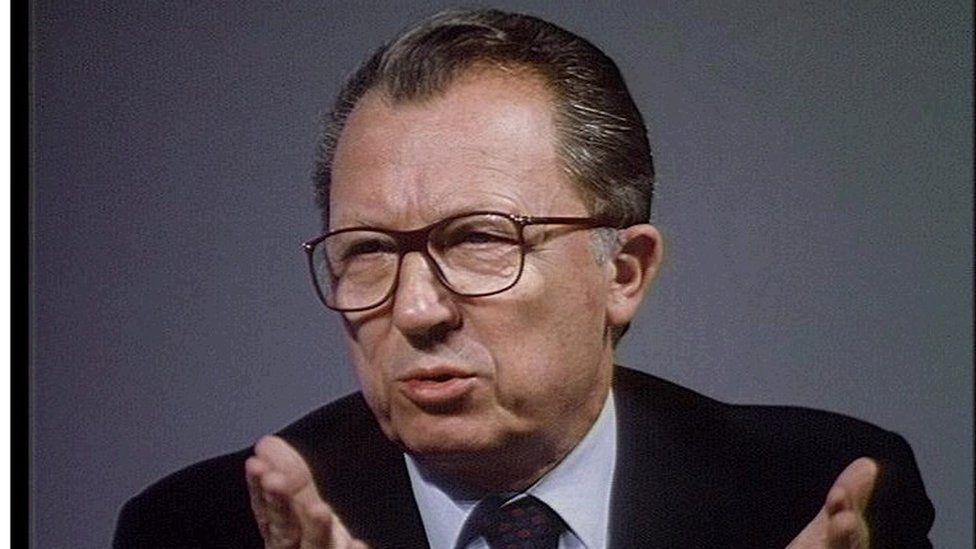-

-
-
Loading

Loading

Jacques Delors, the former president of the European Commission, has passed away at the age of 98. He is widely regarded as the architect of the modern European Union, having played a pivotal role in its development from 1985 to 1995. Delors was a staunch advocate for "ever closer union" and was responsible for key initiatives such as the establishment of the single market and the introduction of the euro. However, he faced significant opposition in the UK, particularly from Margaret Thatcher and the British press, who saw him as a threat to national sovereignty. Delors lived long enough to witness the UK's decision to leave the EU in the Brexit referendum of 2016. Delors was born in Paris in 1925 and experienced a disrupted education due to World War Two. He later joined the Banque de France, where he embarked on a successful career in finance. Delors and his wife Marie were actively involved in the Catholic trade union movement, campaigning for a more secular approach to membership. This led to his involvement in fostering links between employers and workers, ultimately leading to his appointment as chief adviser on social and cultural affairs to the Conservative Prime Minister Jacques Chaban-Delmas in 1969. Delors joined the Socialist party in 1971 but maintained an independent stance, being considered both left-wing by the Socialists and right-wing by the Gaullists. Delors' political career took a significant turn in 1979 when he unexpectedly gained a seat in the European Parliament. He went on to chair the parliament's Economic and Monetary Affairs Committee and became a champion of European integration. In 1981, he became France's Minister of Finance, tackling issues such as public debt and inflation. However, he declined the offer to become prime minister of France in favor of pursuing his true ambition – the role of president of the European Commission. Delors believed that European integration was not just a political concept but an ideal that could guarantee peace across the continent. During his tenure as president of the European Commission, Delors faced numerous challenges, including the end of the Cold War, German reunification, and conflicts in the former Yugoslavia. The European Community also expanded its membership significantly during this time. Delors advocated for the creation of a single European market to compete with the United States and Japan, emphasizing the need for a strong social dimension and central government to ensure its success. While many embraced his ideas, others, such as Margaret Thatcher, dismissed them as absurd. Delors played a key role in the development of the Maastricht Treaty, which established the euro and solidified the European Union. Despite not achieving his vision of a fully integrated Europe, Delors transformed the loose confederation of member states into something more cohesive. However, the treaty also sparked debates and divisions among member nations. After leaving office, Delors declined the opportunity to run as a candidate for the French presidency, a decision he considered one of the most difficult of his life. He later became president of the College of Europe in Bruges, where he continued to influence the EU's development. In 2016, he expressed understanding for the UK's decision to not join the euro, and shortly after, the UK voted to leave the EU. Delors will be remembered as a highly influential technocrat who shaped the European Union according to his vision. Despite facing opposition and challenges, he dedicated his career to creating a powerful organization that could guide the political and economic decisions of member states for the sake of peace and unity. However, his vision was not universally shared.